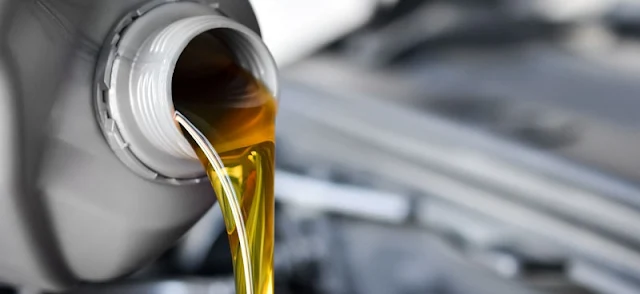樂 Can You Use 20W-50 Motor Oil in Your Lawn Mower?
It's a question many of us have asked while staring at a half-empty bottle of car oil and an oil thirsty lawn mower: can I just use this? The short answer is yes, you can probably use 20W-50 oil in your lawn mower in a pinch, but it's definitely not the end of the story.
Using the right oil is about more than just lubrication; it's about protecting your engine and ensuring it runs smoothly for years to come. Let's explore the science behind engine oil and find out if that bottle of 20W-50 is a good choice for your trusty mower.
What is 20W-50 Oil, Anyway?
20W-50 is a multi-grade motor oil that is actually quite specialized. It's primarily formulated for older vehicle engines, typically those made before 1980, as well as high-performance or air-cooled engines that run at higher temperatures. Its thickness is its defining feature, but to understand what that means, we need to talk about viscosity.
The Science of Viscosity: Decoding the Numbers
The most important characteristic of any engine oil is its viscosity, which is simply a measure of the oil's thickness or resistance to flow. The numbers in "20W-50" tell you how the oil behaves at different temperatures:
- The "20W" part: The "W" stands for Winter. This number indicates the oil's viscosity at low temperatures. A lower number means the oil is thinner and flows more easily in the cold, which is crucial for starting your engine without causing damage.
- The "50" part: This number represents the oil's viscosity at the engine's normal operating temperature (around 100°C or 212°F). A higher number means the oil remains thicker and more protective at high temperatures.
✅The Standard for Mowers: Why SAE 30 is King
For decades, the go-to oil for small, air-cooled engines like those in lawn mowers has been a straight "30-weight" oil, often labeled as SAE 30. Unlike a multi-grade oil, its viscosity is measured at a single operating temperature. The reason it works so well is that lawn mower engines are typically air-cooled and run much hotter than a liquid-cooled car engine. The thicker viscosity of SAE 30 helps it maintain a strong lubricating film on engine parts even at these high temperatures.
Because of this, SAE 30 is an excellent choice for most lawn mowers, especially in warmer weather. So, when would 20W-50 be a suitable substitute? It's also a thick oil at high temperatures (a "50" is thicker than a "30"), so it will certainly protect your engine during a hot summer day. However, it might be too thick for easy starting in cooler weather.
A Quick Guide to Choosing the Right Oil
- For Hot Climates: SAE 30 or 10W-30 are your best bets. 20W-50 can also work well.
- For Colder Climates: Look for a multi-grade oil with a lower "W" number, like 5W-30, for easier cold starts.
- For Variable Climates: A multi-grade oil like 10W-30 is a fantastic all-around choice, offering good protection in both warm and cool weather.
The Golden Rule: When in doubt, always check your lawn mower's user manual! The manufacturer knows the engine best. If you've lost the manual, a quick Google search for your model will almost always bring up a digital copy.
More Than Just Lubrication: The Importance of Detergents
Modern engine oils do more than just lubricate. They contain a complex package of additives, including crucial detergents and dispersants. These additives work to keep your engine clean internally by preventing the buildup of sludge and carbon deposits.
This is a major reason why you should always avoid using cheap, low-quality engine oil if you can. Investing in a quality oil means you're also investing in a cleaner, longer-lasting engine.
There's an interesting school of thought that modern lawn mower engines are not that different from the simple, rugged engines built decades ago. Those old engines ran on the most basic oils imaginable.
By that logic, almost any modern motor oil, with its advanced synthetic compounds and additives, is likely more than capable of protecting your mower's engine. This probably explains why so many people report using various car oils in their mowers for years without any issues. It's something to consider!
